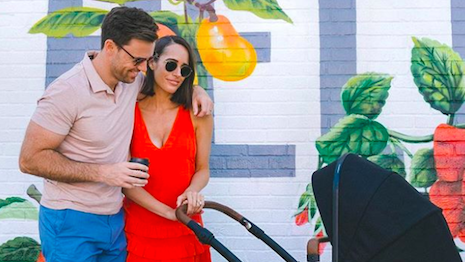- About
- Subscribe Now
- New York,
June 18, 2019

 Neiman Marcus offered the best customer experience among multichannel retailers. Image credit: Neiman Marcus
Neiman Marcus offered the best customer experience among multichannel retailers. Image credit: Neiman Marcus
Brands across sectors are struggling to raise their standards for innovative customer experiences and enhance their offerings and services.
According to Forrester’s 2019 “U.S. Customer Experience Index,” the majority of the highest-performing brands remained stagnant from 2018 to 2019. Brands must do more to improve customer experiences, as well as reach the ever-growing number of consumers who make purchases based on a brand’s values.
“The percentage of customers who say their expectations have been exceeded had been in steady decline,” said Harley Manning, analyst at Forrester. “Pair that with most brands emphasizing ‘find and fix,’ incremental improvement as opposed to innovation, and you get a slow-motion race between expectations and improvements, where expectations are moving faster.”
Forrester’s CX Index was based on a survey of more than 100,000 U.S. adult consumers. Forrester evaluated 260 brands across industries including airlines, banks, credit cards, insurance providers, hotels and retailers.
Brand stagnation
Toyota Corp.’s Lexus was the only premium brand to score in the top 5 percent of index brands, ranking fourth overall with a customer experience score of 80.0 on a scale of 100.
For the third straight year, Lexus was the highest ranked in the luxury automotive manufacturer category, improving on its 2018 first-place score of 78.5. German automakers Mercedes-Benz and Audi followed, and the category’s 2019 average was 74.3.
Appreciation is part of a strong customer experience. Image credit: Lexus
No industry achieved an “excellent score” of 85 and above. Although luxury automakers had the greatest industry average, the highest scoring brand was Navy Federal Credit Union with a score of 82.9.
Neiman Marcus improved on its 2018 score of 75.2 to move up two spots and take the first place in the multichannel retailer category. Nordstrom saw its score decline slightly, from 73.7 to 73.3, and ranked tenth in the industry.
Premium brands including Omni Hotels, Westin Hotels & Resorts, W Hotels, Hilton Hotels & Resorts and Intercontinental Hotels & Resorts also scored above the hotel industry average of 70.5.
The average customer experience score in hospitality was 70.5. Image credit: Hilton
Forrester estimates that 20 percent of brands, including 45 percent of digital retailers, are “languishers” that innovate quickly and then stagnate. More than half are “locksteppers” and fail to differentiate their customer experiences from their competition.
Brands can promote consumer loyalty by making customers feel appreciated, valued and happy.
“[Luxury brands should] de-emphasize the drive to digital-only self-service and refocus on digital integration with both phone service and physical spaces, including the people in those spaces,” Mr. Manning said. “This over-pivot to digital for cost cutting hasn’t plagued luxe brands as much as other brands but it’s insidious and has still managed to creep in.”
Values competition
In addition to customer experience, brands must also pay more attention to consumers Forrester labels as “value-based.”
Forrester categorizes brands as having neutral, reflected or core values. Neutral standards do not delve into more controversial social or religious values, while other brands may embrace the values of their client base or incorporate certain values from their inception.
Furthermore, brands can abstain, signal or act on their values and mission. This can range from incorporating values into certain experiences, or adding or removing experiences that fit into the business’s brand.
In an instance of removal, Italian fashion group Prada is the latest brand to commit to a fur-free pledge in collaboration with the Fur Free Alliance. The group explains that its move is meant to coincide with its socially conscious ideology and will push its labels to be more creative in their designs (see story).
Also within the luxury apparel space, consignment platform The RealReal is bringing scientific research to its customers in an effort to exhibit the impact each shopper will have on sustainability through their purchases.
In tandem with National Consignment Day, The RealReal launched its Sustainability Calculator to show how secondhand sales can have a positive effect on the planet. The platform’s calculations show that it has offset the equivalent of 65 million car miles in greenhouse gasses and energy saving since 2012 in regards to women’s apparel (see story).
Share your thoughts. Click here